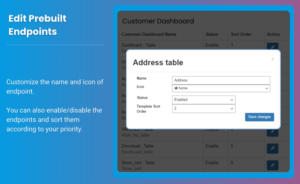The decentralized finance (DeFi) ecosystem has transformed the financial landscape, offering new ways for individuals to engage with traditional financial services without intermediaries. At the core of many DeFi projects lies a unique innovation: governance tokens. These tokens empower holders with voting rights, shaping the future of protocols and projects. This article delves into the essential role governance tokens play in DeFi projects, providing insights for investors collective looking to navigate this evolving space.
Understanding Governance Tokens
Governance tokens are digital assets that enable holders to participate in the decision-making processes of decentralized applications (dApps) and protocols. Unlike traditional equity in a company, which may confer ownership stakes, governance tokens represent voting rights within a decentralized network. Token holders can propose changes, vote on proposals, and influence the direction of the project.
Governance tokens emerged from the need for decentralized governance structures in blockchain ecosystems. They facilitate community-driven decision-making, allowing stakeholders to have a say in the future of projects. This model enhances transparency and aligns incentives among participants, fostering a sense of ownership and engagement.
The Mechanisms of Governance
Governance tokens operate through smart contracts, which automate the decision-making process. When a proposal is made—be it a protocol upgrade, fee adjustments, or the introduction of new features—token holders can cast their votes. The outcome is determined by the majority opinion, and the process is recorded on the blockchain, ensuring transparency and immutability.
Voting mechanisms can vary among projects. Some utilize a simple majority vote, while others may require a supermajority or weighted voting based on the number of tokens held. This diversity in governance models allows projects to tailor their decision-making processes to their unique needs and communities.
Types of Governance Tokens
- Protocol Governance Tokens: These tokens are associated with specific DeFi protocols, granting holders the ability to influence the protocol’s direction. Examples include Uniswap’s UNI and Aave’s AAVE tokens.
- DAO Governance Tokens: Decentralized Autonomous Organizations (DAOs) use governance tokens to empower community-driven decision-making. Holders can vote on various aspects, from fund allocation to project development. A prominent example is the MakerDAO governance token, MKR.
- Multi-Sig Governance Tokens: Some projects employ multi-signature wallets for governance, where token holders must reach consensus among a group of signatories before implementing changes. This method enhances security but can slow down decision-making.
- Hybrid Governance Tokens: Combining elements from different governance models, hybrid tokens offer flexibility in decision-making. They may include features like delegated voting, where token holders can delegate their voting power to representatives.
The Importance of Governance Tokens in DeFi
1. Empowering Communities
Governance tokens empower communities by giving them a voice in the project’s development. This participatory approach fosters a sense of belonging among users, encouraging them to contribute ideas and feedback. As stakeholders, community members are more likely to support the project’s success, driving engagement and adoption.
2. Enhancing Transparency
Blockchain technology underpins governance tokens, ensuring that all voting and decision-making processes are transparent and verifiable. Participants can track proposals, voting outcomes, and the rationale behind decisions. This transparency builds trust within the community and attracts new users who value accountability.
3. Aligning Incentives
Governance tokens create alignment between the interests of the project and its stakeholders. By giving token holders a stake in the project’s success, they are incentivized to make decisions that benefit the ecosystem as a whole. This alignment reduces the likelihood of malicious behavior and encourages long-term commitment from community members.
4. Facilitating Innovation
With governance tokens, projects can implement changes more rapidly and responsively to market needs. Communities can propose and vote on innovative features, creating a dynamic environment where projects can adapt and evolve. This flexibility is crucial in the fast-paced DeFi landscape, where new trends and technologies emerge frequently.
Risks Associated with Governance Tokens
1. Centralization of Power
While governance tokens aim to decentralize decision-making, there is a risk of centralization. Whales—individuals or entities holding a significant number of tokens—can disproportionately influence decisions, undermining the democratic nature of governance. This centralization can lead to conflicts of interest and hinder the community’s ability to effect meaningful change.
2. Low Voter Participation
Governance mechanisms are only as effective as the engagement of token holders. Low voter turnout can result in decisions made by a small minority, potentially leading to unpopular or detrimental outcomes. Projects must encourage active participation through incentives, education, and community-building initiatives.
3. Governance Attacks
Malicious actors may attempt to manipulate governance processes to achieve their objectives. This could involve acquiring a significant number of tokens to influence decisions or proposing changes that serve their interests at the expense of the community. Robust security measures and vigilant community oversight are essential to mitigate these risks.
4. Regulatory Uncertainty
The regulatory landscape surrounding governance tokens remains unclear in many jurisdictions. This uncertainty can pose risks to projects and token holders, as regulatory actions may impact the usability and value of governance tokens. Projects should stay informed about regulatory developments and ensure compliance to protect their communities.
Best Practices for Investors in Governance Tokens
1. Research the Project’s Governance Model
Before investing in governance tokens, it’s crucial to understand the project’s governance model. Assess how decisions are made, the voting mechanisms in place, and the level of community engagement. A well-structured governance model can enhance the likelihood of a project’s success and stability.
2. Evaluate the Community
The strength and engagement of a project’s community can significantly impact its long-term viability. Look for active forums, social media discussions, and developer engagement. A passionate and knowledgeable community is more likely to drive the project forward and adapt to challenges.
3. Analyze Token Distribution
Understanding the distribution of governance tokens is vital. A project with a fair distribution model is less likely to experience centralization issues. Evaluate the tokenomics to ensure that no single entity or individual holds excessive power over the decision-making process.
4. Stay Informed About Proposals
Active participation in governance requires staying informed about proposals and developments. Investors should regularly review proposal discussions, voting outcomes, and community sentiment. Engaging in discussions can enhance understanding and contribute to informed voting.
5. Diversify Your Portfolio
As with any investment, diversification is essential. Relying solely on governance tokens from a single project can be risky. Consider investing in a variety of governance tokens across different protocols to spread risk and capitalize on various opportunities within the DeFi landscape.
The Future of Governance Tokens in DeFi
The future of governance tokens in DeFi appears promising, with ongoing innovations and improvements in governance models. As the DeFi ecosystem continues to evolve, we can expect new governance structures that address current challenges and enhance community engagement.
Increased Interoperability
Future governance models may prioritize interoperability between different DeFi protocols. This could allow token holders to influence multiple projects with a single governance token, streamlining decision-making and enhancing collaboration across ecosystems.
Improved User Experience
Efforts to enhance the user experience in governance participation are likely to grow. Projects may implement user-friendly interfaces, simplified voting mechanisms, and educational resources to encourage broader participation and understanding.
Decentralized Identity Solutions
Decentralized identity solutions may play a crucial role in the governance landscape. By verifying the identity of token holders, projects can ensure that voting power is distributed more equitably, reducing the risk of governance attacks and centralization.
Evolving Regulatory Frameworks
As the regulatory landscape matures, we may see clearer guidelines for governance tokens. Projects that comply with regulations will be better positioned to attract institutional investors, further legitimizing the role of governance tokens in the financial ecosystem.
Conclusion
Governance tokens are integral to the DeFi landscape, empowering communities and enabling decentralized decision-making. For investors, understanding the role and mechanics of these tokens is essential for navigating the dynamic world of DeFi. By engaging with projects, staying informed, and actively participating in governance processes, investors can play a crucial role in shaping the future of decentralized finance. As the ecosystem continues to evolve, governance tokens will undoubtedly remain a key component in driving innovation and collaboration in the financial sector.














